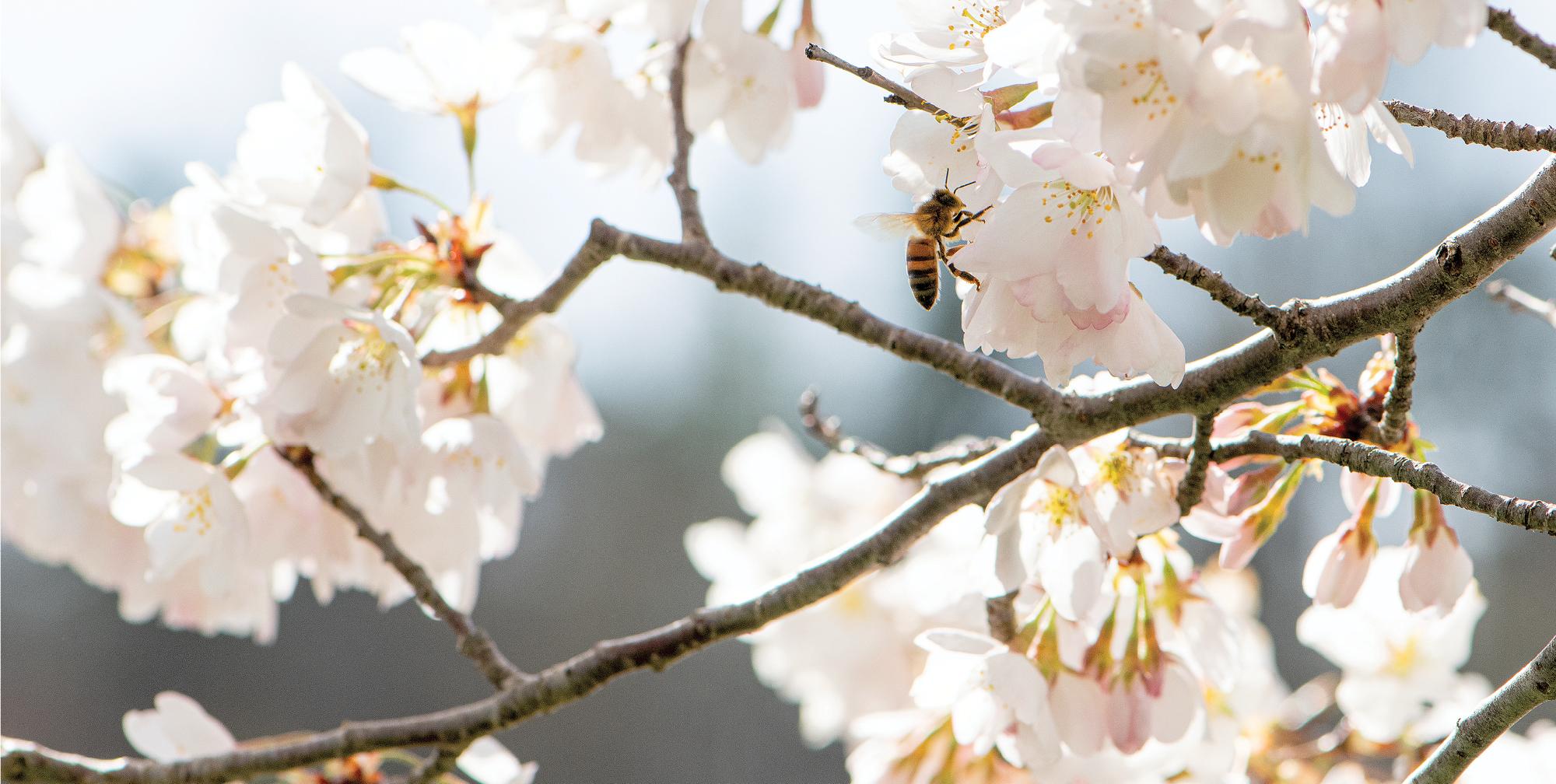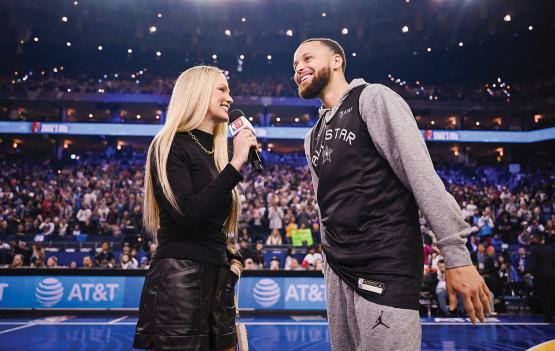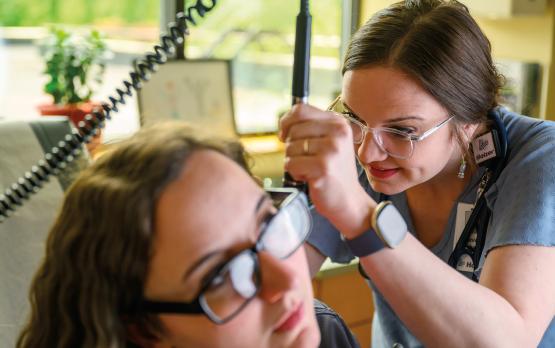When National Geographic listed Ohio University as one of the best places to see cherry blossoms in the U.S., no one on the Athens Campus was surprised. After all, the annual April bloom makes an already-beautiful campus pop like no other time. The fleeting beauty of the cherry (sakura) trees—a gift from Chubu University in Japan—belies the lasting relationship between the two institutions, celebrating 50 years in 2023. And the relationship has recently survived perhaps its biggest challenge yet, a global pandemic that shut down in-person exchanges—the heart of the OHIO-Chubu partnership—for two full years.
Case in point: Dr. Yeong-Hyun Kim, associate professor of geography, was supposed to be OHIO’s Miura Visiting Professor at Chubu in 2020. The visiting professor program is what established the relationship between Athens and Kasugai, Japan, in 1973. Her plan was to research the 2020 Tokyo Olympics, which were themselves postponed due to COVID-19. Kim pivoted and went to Chubu in 2022 and instead studied the city of Sapporo, Japan’s bid to host the 2030 Winter Olympics and what that means financially and psychologically for the host country.
“It’s a good place to go for any Ohio University professor,” Kim recalled after returning to Athens. “There is plenty of similarity between Ohio and Aichi where Kasugai is located. Aichi is a prefecture with a strong manufacturing base, and Toyota is headquartered there. It is the Japanese equivalent of the U.S. Midwest.”
Kim’s host professor was the head of Chubu’s GIS Center (geographic information systems). Kim would now like to pursue GIS research collaboration between Chubu and OHIO’s Voinovich School of Leadership and Public Service. Last summer, two Chubu students audited one of Kim’s courses online. While there, Kim reconnected with a former OHIO student who now works at Chubu’s Center for International Affairs. In addition, under Kim’s supervision, Misa Mukaigawa, a former Chubu student and a Charles J. Ping Graduate Fellow in OHIO’s International Development Studies, successfully completed her master’s project this winter. This constant expansion of relationships between OHIO and Chubu is a common theme.
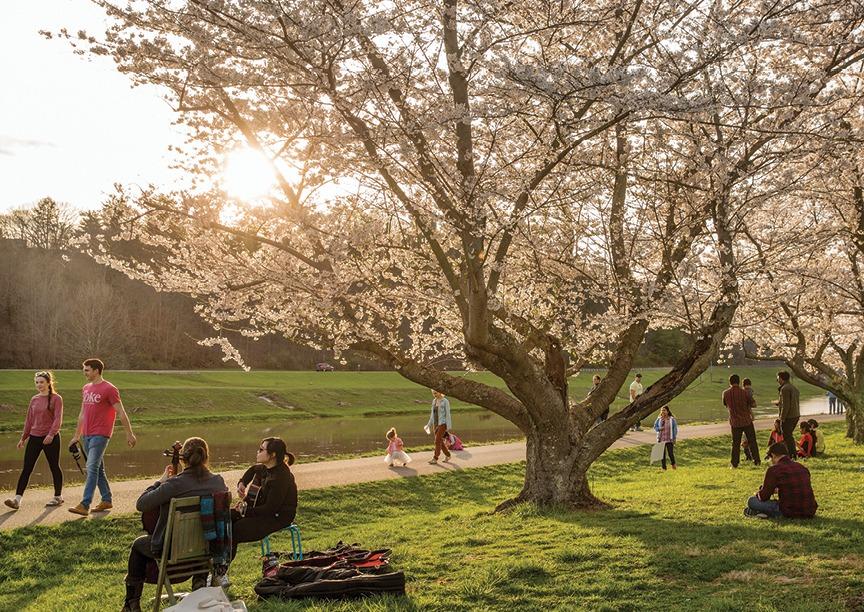
Locals and visitors enjoy OHIO’s cherry blossoms. Photo by Joel Prince, BS ’12, MA ’15, courtesy of Visit Athens County
In a sense, the institutions’ shared vision of international understanding, friendship and scholarship was borne out of the horrors of war. The late Dr. Tomoyasu Tanaka is considered the father of the OHIO-Chubu partnership; he and his Chubu colleague Hiroshi Katsumori were the driving force behind the Miura Visiting Professors program. Tanaka’s daughter, Norico Tanaka-Wada, referred to her father’s memoirs in which he described witnessing the atomic bomb attack of Hiroshima in 1945. “I pray deeply that never again will such a tragedy happen again on this earth,” he wrote.
To that end, Tanaka was a stalwart supporter of the OHIO-Chubu partnership. Starting in 1984, he split his time between OHIO and Chubu, where he became the first director of Chubu’s Center for International Affairs. As remarkable as Tanaka’s commitment was, the OHIO-Chubu relationship continued to thrive after his retirement (he died in 2014).
“A lot of times you’ll have a relationship between two schools driven by one person … and when that person is not around anymore that really falls apart,” said Dr. Gerry Krzic, director of the Ohio Program of Intensive English (OPIE). “This one has endured.”
Not only has it endured, it has grown. In 1977, Chubu started sending students to Athens to study English. In 1994, Chubu students began studying for an entire term in the OPIE program. After a two-year pandemic hiatus, over 100 Chubu students studied at OHIO in 2022.
On a chilly night last fall, Chubu exchange student Hina Uchida sat at a table in Jefferson Hall for OPIE’s International Conversation hour. She was all smiles, in a good mood because her persuasive speech in her COMS class of both American and Japanese students went well. (Her argument: Professors should assign homework that relates to students’ lives.)
“I was nervous, but I enjoyed my speech and I was comfortable more than before, (on) the first day. So I’m proud of my English,” she said.
Before conversation hour wrapped up, Krzic played emcee for trivia. After fielding some laughter-inducing answers to American trivia questions, Krzic asked the American students in the crowd of about 100, “Are you happy that Chubu students are here?” The answer was a resounding yes. “Chubu students, are you glad you came?” Another resounding yes. Finally, “In person or Zoom?” The question, of course, was rhetorical. “In person!”
The personal touch begins in the classroom and then extends beyond, both in the U.S. and Japan. American students have been studying Japanese at Chubu since 1993. Dr. Chris Thompson, who teaches Japanese and is on the Chubu University Relations Committee, has served as OHIO’s Japan study abroad coordinator since 1998 and was a Miura visiting professor in 2019. Born and raised in Japan, Thompson has long studied Japan as an ethnographer.
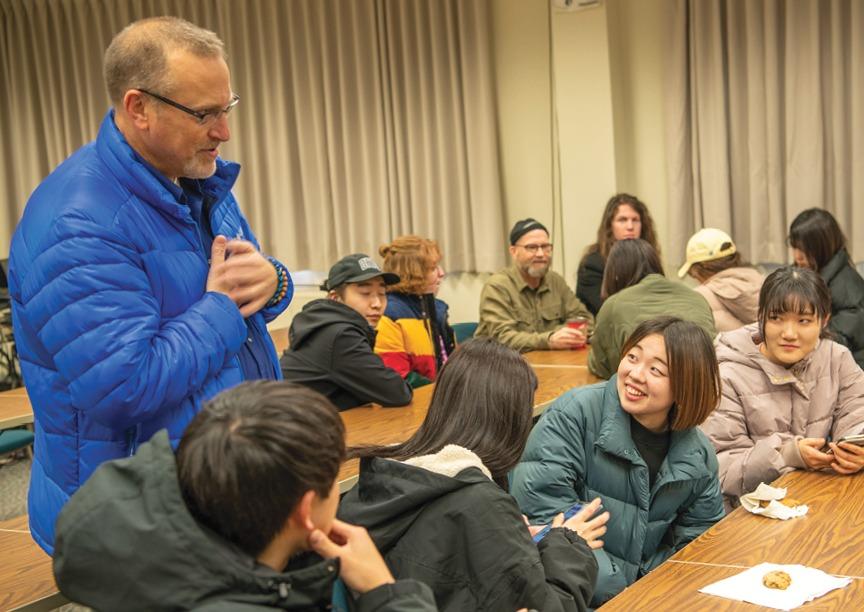
John Sabraw and Chris Thompson discuss a mural project in Japan with students from Chubu and Ohio University. Photo by Ben Wirtz Siegel, BSVC '02
While Chubu is located in central Japan (“chubu” means “central” in Japanese), Thompson’s area of expertise is northeast Japan, where Iwate Prefecture is located—the region that was devastated by a tsunami in 2011. So when the tsunami hit, Thompson was positioned to quickly rally both Japanese and American students to help with tsunami cleanup. OHIO alumni donated funds to pay transportation and lodging costs for students already in Japan to travel to Iwate.
The tsunami cleanup was classic service learning whereby OHIO students gained academic skills (Japanese language and culture) while helping meet a community need. It began with cleanup and by year two included “water volunteerism,” where volunteers took bottled water and green tea to people displaced from their homes, first to emergency shelters and then to temporary housing. But once the residents returned to permanent housing, something interesting happened.
“Even when the water was hooked up, the families still asked to have water,” Thompson said. “The water delivery became a form of contact … They remembered us. And some of the Ohio University students were getting better and better at Japanese.”
Thompson has continued to lead a service-learning project in Iwate every September, excluding 2020 and 2021 during the pandemic. Now he is expanding service learning elsewhere, including near Chubu, under the U.S.-Japan Global Engagement Project.
In short, the OHIO-Chubu partnership has weathered a global pandemic and is emerging as strong as ever, ready for the next 50 years. “What I think we learned from COVID is that technology is fine,” said OPIE’s Krzic. “It’s enhanced some things, but we’ve really realized the value of this in-person connection. Nothing beats that for education.”
Feature image by Rich-Joseph Facun, BSVC '01
Ohio-Chubu Partnership: A Timeline
1973 to 1984
Notable Moments in History
1973 Sydney Opera House is completed
1977 Star Wars debuts
1983 The birth of the modern Internet
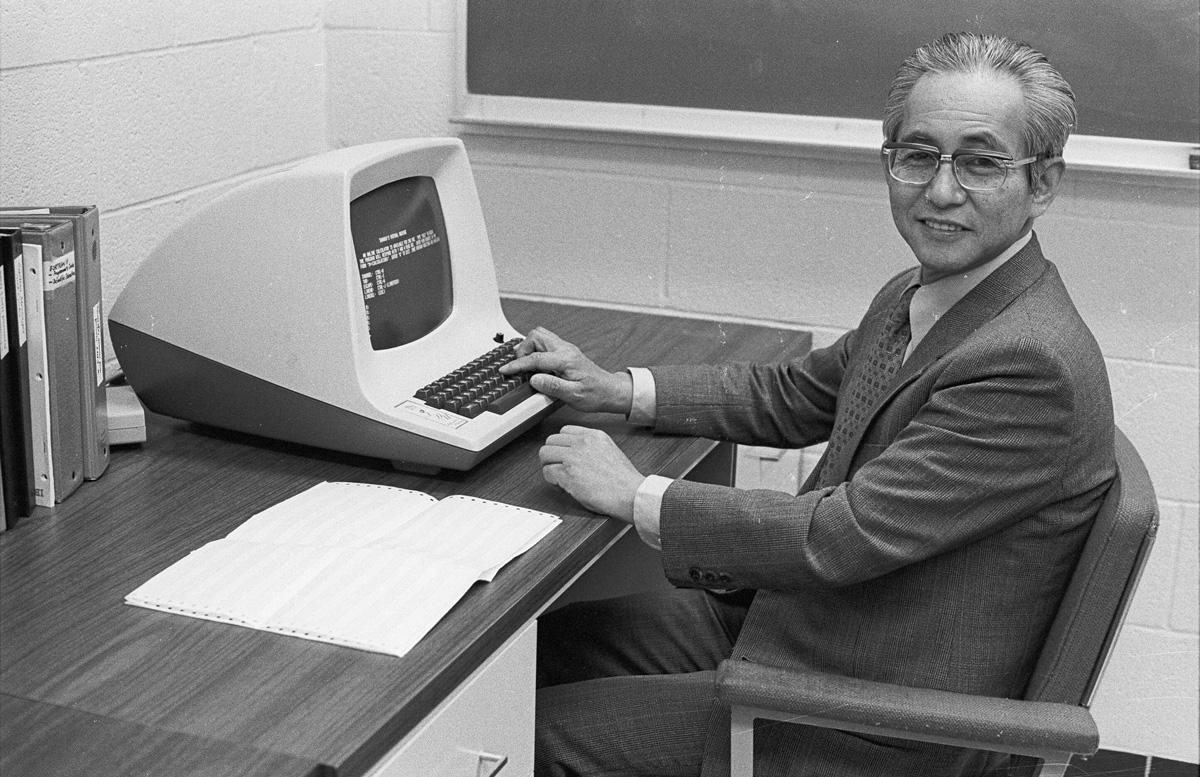
Photo courtesy of the Mahn Center For Archives & Special Collections
Chubu Institute of Technology President Kohei Miura and OHIO President Claude Sowle sign a formal agreement instituting the Miura Visiting Professors program. Each year, an Ohio University professor is selected to visit Chubu University for an academic term to engage in research or other scholarship. The exchange is initiated by OHIO physics faculty Tomoyasu Tanaka (pictured) and James Shipman along with Chubu’s Hiroshi Katsumori.
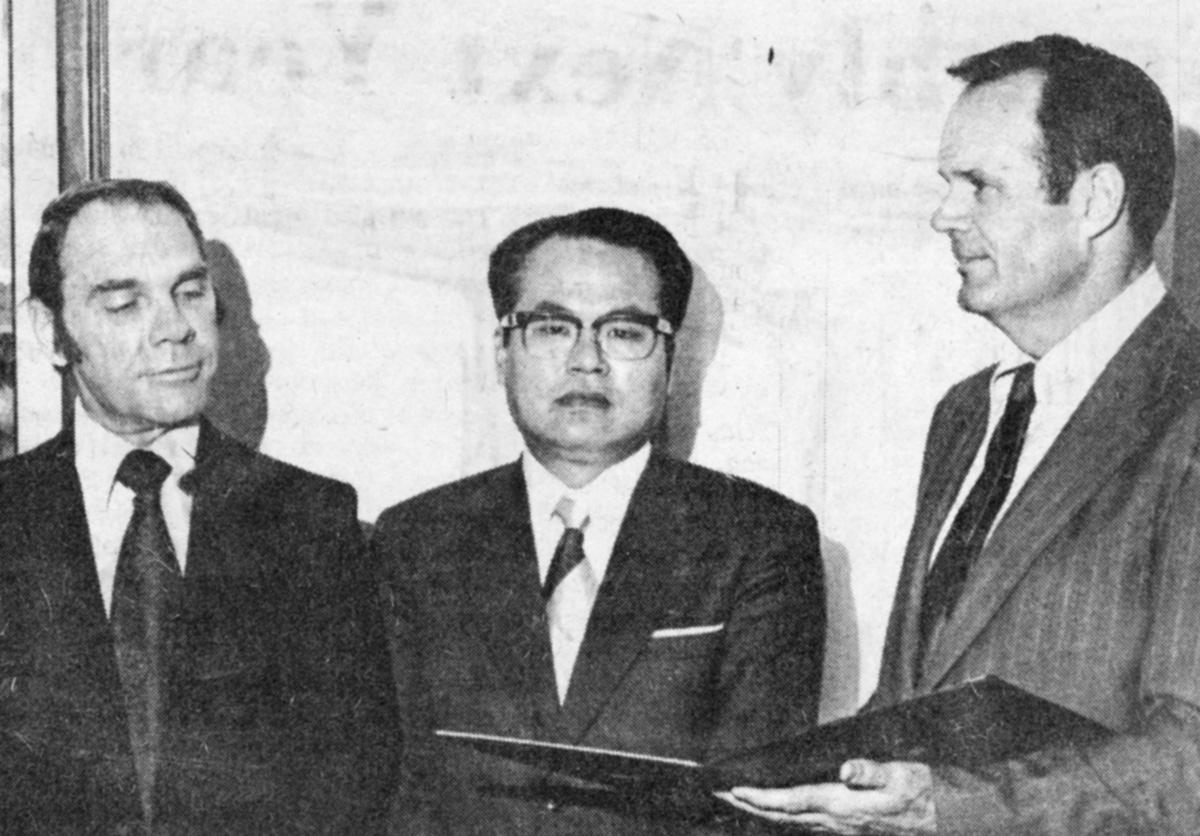
Photo courtesy of the Mahn Center For Archives & Special Collections
An honorary Ohio University degree is posthumously awarded to Kohei Miura.
The Chubu University Commemorative Japanese Collection, established with the 1973 agreement, begins collecting materials. Today, the collection is held next to Alden Library’s Chubu Reading Room on the first floor. The collection supports Japanese language study and Japan-related topics. The reading room mimics the look of a Japanese tearoom, with translucent paper over a lattice frame. In Japan, the Ohio University Room in the Chubu library opened in 1994.
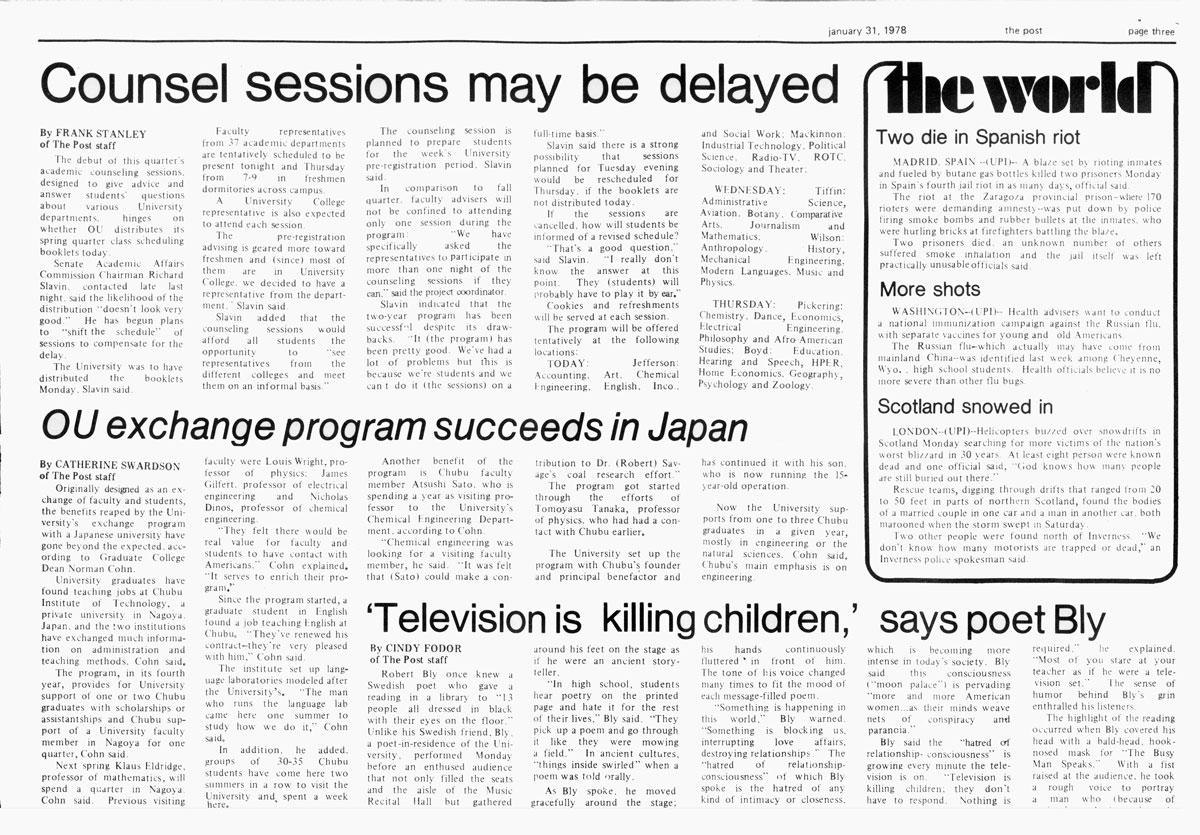
Photo courtesy of the Mahn Center For Archives & Special Collections
OHIO begins sending English language instructors to Chubu.
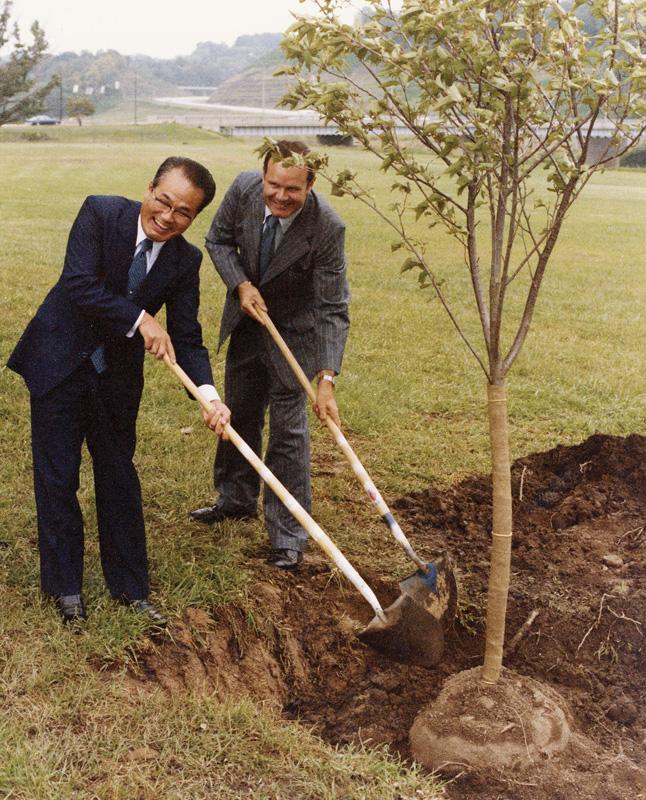
Photo courtesy of the Mahn Center For Archives & Special Collections
175 cherry trees (sakura trees) are gifted to Ohio University by the Chubu Institute of Technology in honor of OHIO’s 175th anniversary (pictured). In 2003, Chubu University gifts 103 more cherry trees to replace damaged trees and to bring the total up to 200 to mark OHIO’s bicentennial.
Chubu students begin coming to OHIO for short-term English training, lasting about two weeks.
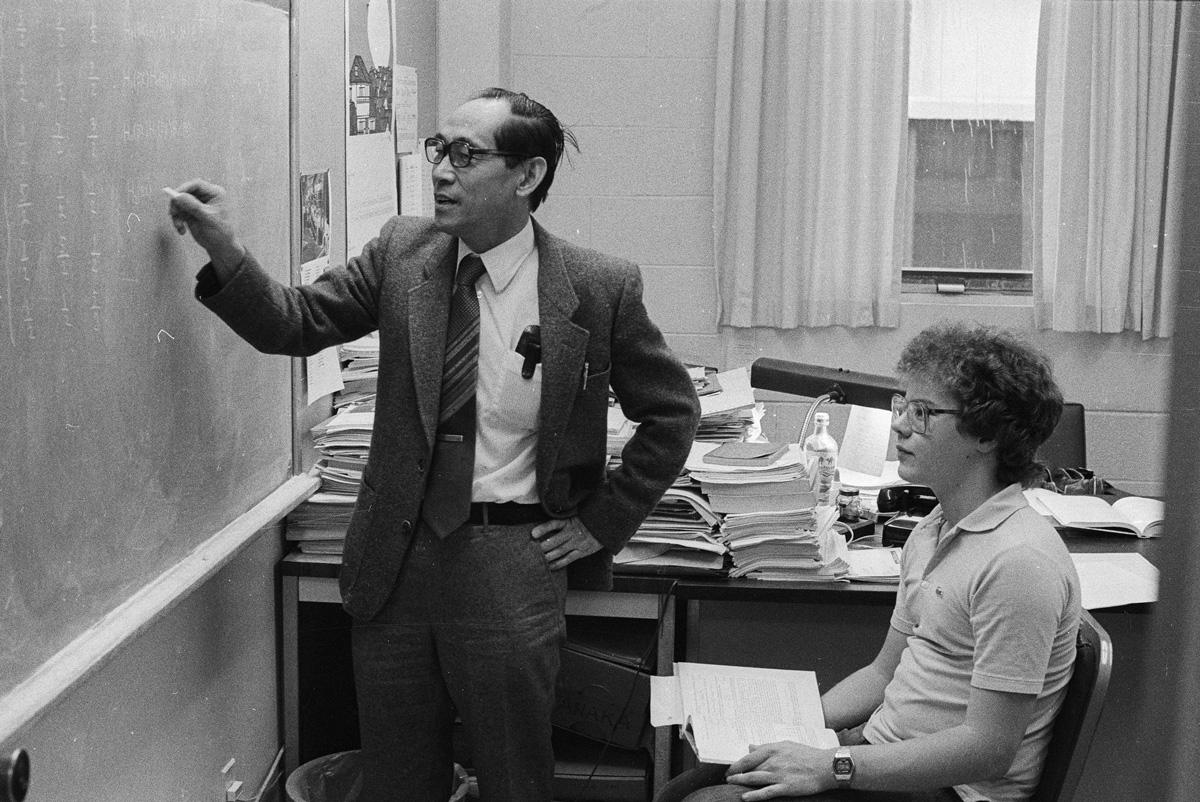
Photo courtesy of the Mahn Center For Archives & Special Collections
Tomoyasu Tanaka becomes director of Chubu’s Center for International Affairs. He continues to teach part of the year at Ohio University. He will later be named professor emeritus at both institutions.
1990 to 2004
Notable Moments in History
1990 Hubble Space Telescope is launched
1998 Google is founded
2002 Euro enters circulation
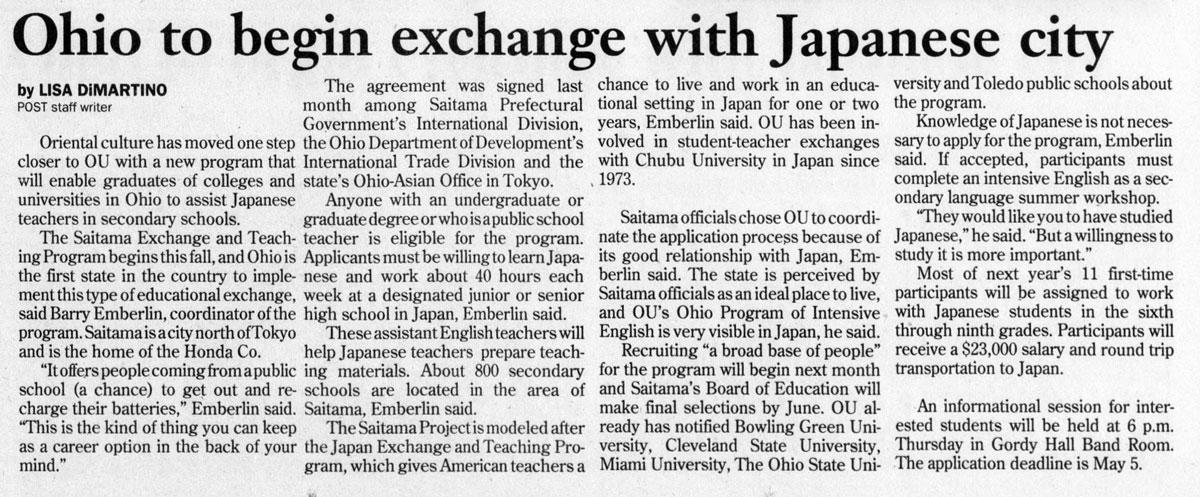
Photo courtesy of the Mahn Center For Archives & Special Collections
The Ohio Program for English Language Teaching (OPELT) begins at Chubu. The goal is to provide on-site, high-quality English language instruction by native English speakers who are trained in teaching English as a second language. Through an institutional agreement, most instructors are OHIO graduates.
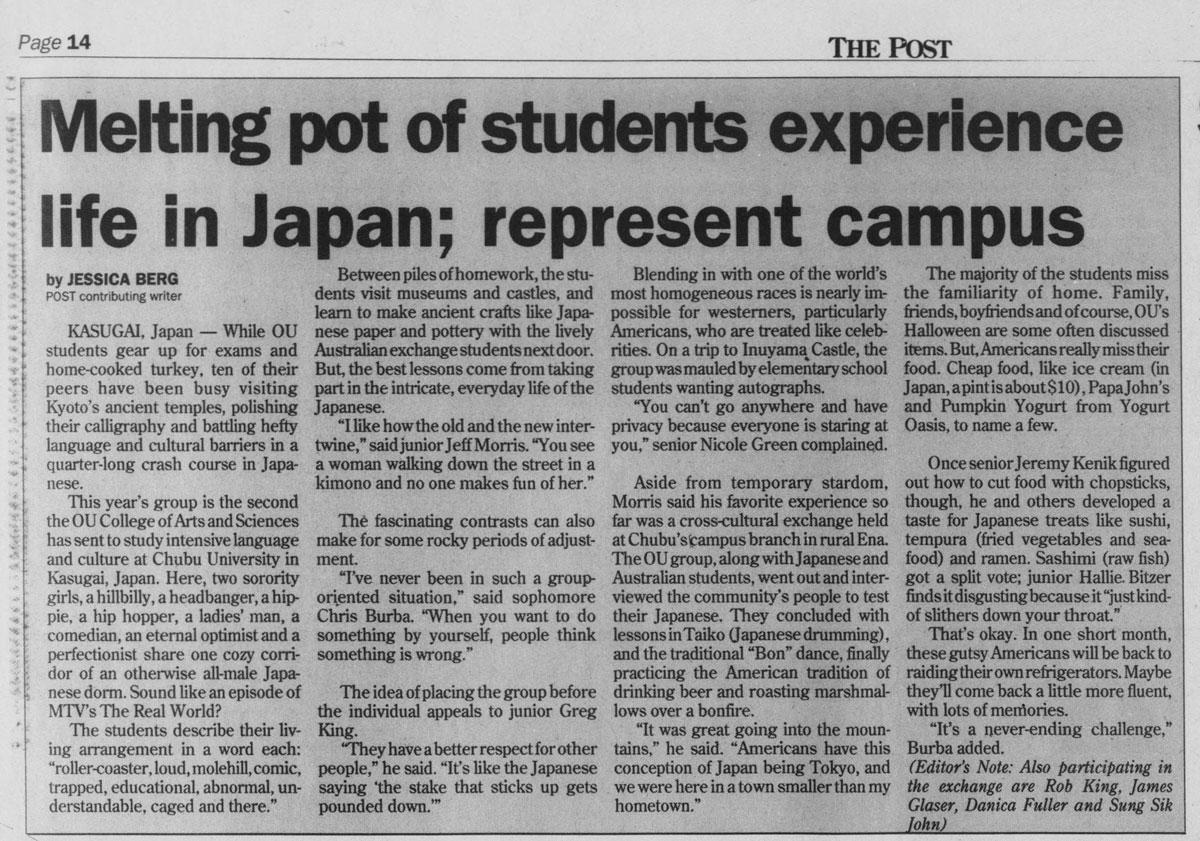
Photo courtesy of the Mahn Center For Archives & Special Collections
Ohio University students begin studying Japanese at Chubu. On average, eight OHIO students study at Chubu every year.
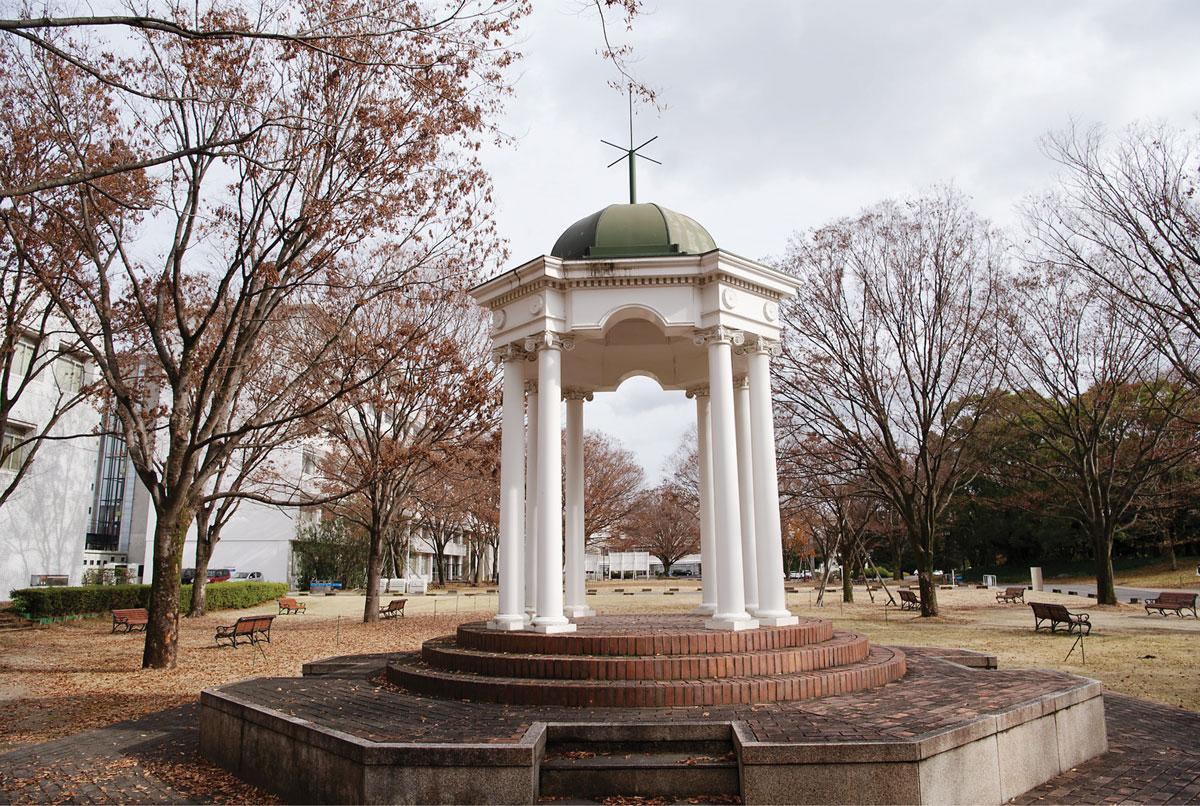
Photo by Ben Wirtz Siegel, BSVC ’02
In commemoration of 20th anniversary of the OHIO-Chubu partnership, OHIO gifts a Cutler Hall cupola replica to the Japanese campus. In this case, the cupola rests on the ground, making it more like a gazebo.
The quarter-long (now semester-long) Choki Study Abroad Program brings Chubu students to OHIO to study English through the Ohio Program of Intensive English (OPIE). “Choki” means long-term in Japanese. Thirty Chubu students studied English at OHIO in the first class; 104 studied in Athens in 2022.
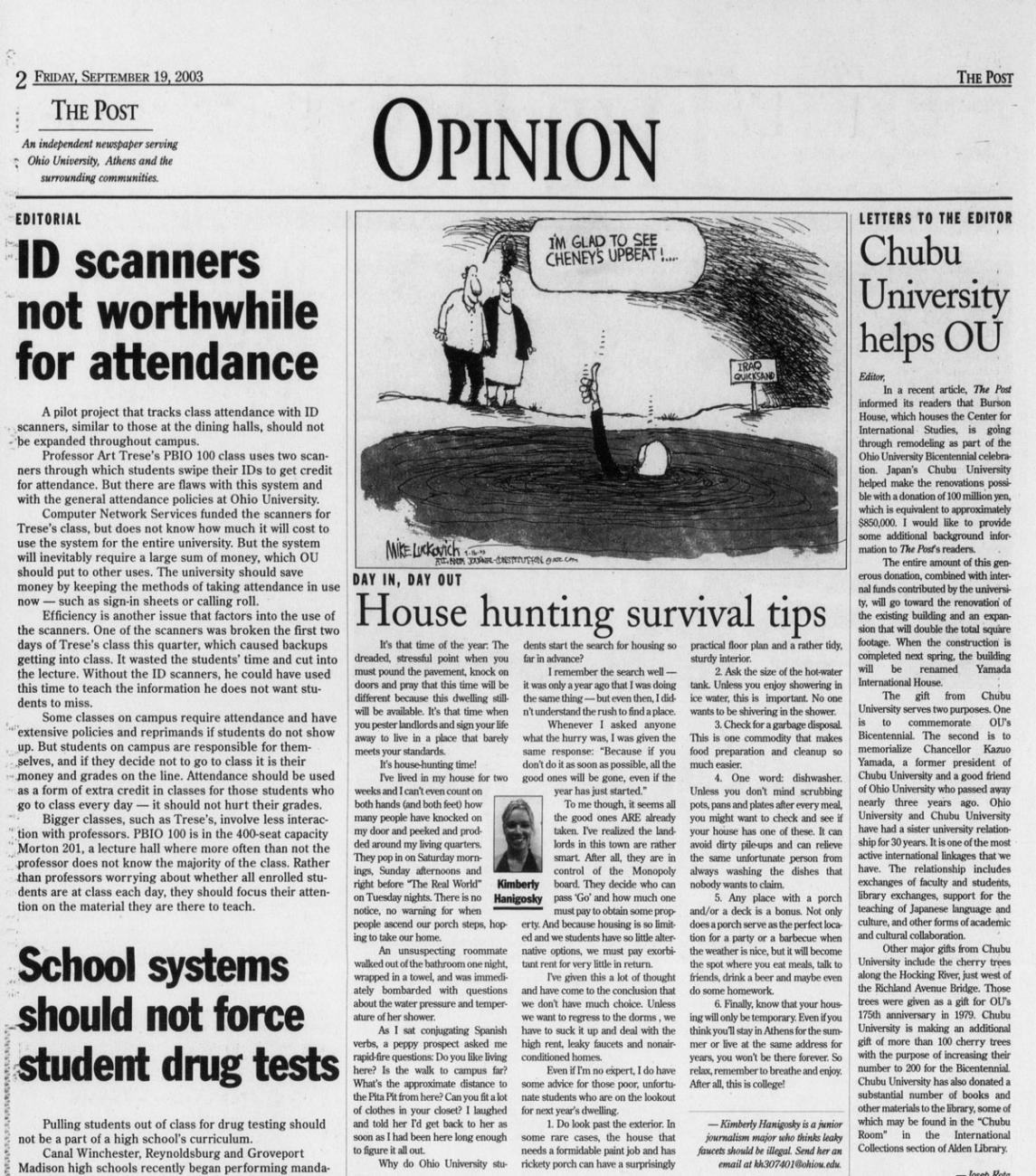
Photo courtesy of the Mahn Center For Archives & Special Collections
The Robert Glidden Visiting Professorship is inaugurated, and now each year a Chubu University professor visits Ohio University to engage in scholarship, creating a two-way visiting professor program.

Photo by Rick Fatica, MFA ’08
During OHIO’s bicentennial, Burson House—home to the Center for International Studies—undergoes a renovation that doubles its square footage. The renovation is made possible by a 100 million yen (about $850,000) donation from Chubu University. It is renamed Yamada House after the late chancellor of Chubu University, Kazuo Yamada.
2014 to 2025
Notable Moments in History
2016 Brexit vote
2020 COVID-19 pandemic
2022 ChatGPT launches
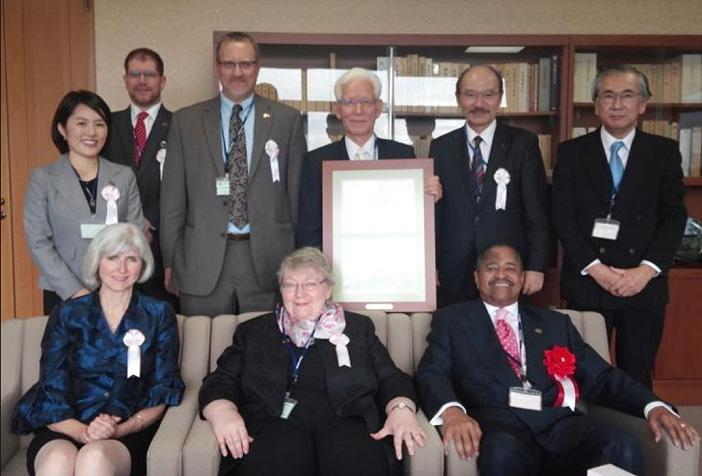
Chubu University celebrates its 50th anniversary. OHIO President Roderick McDavis leads a delegation to Japan to participate in the celebration.
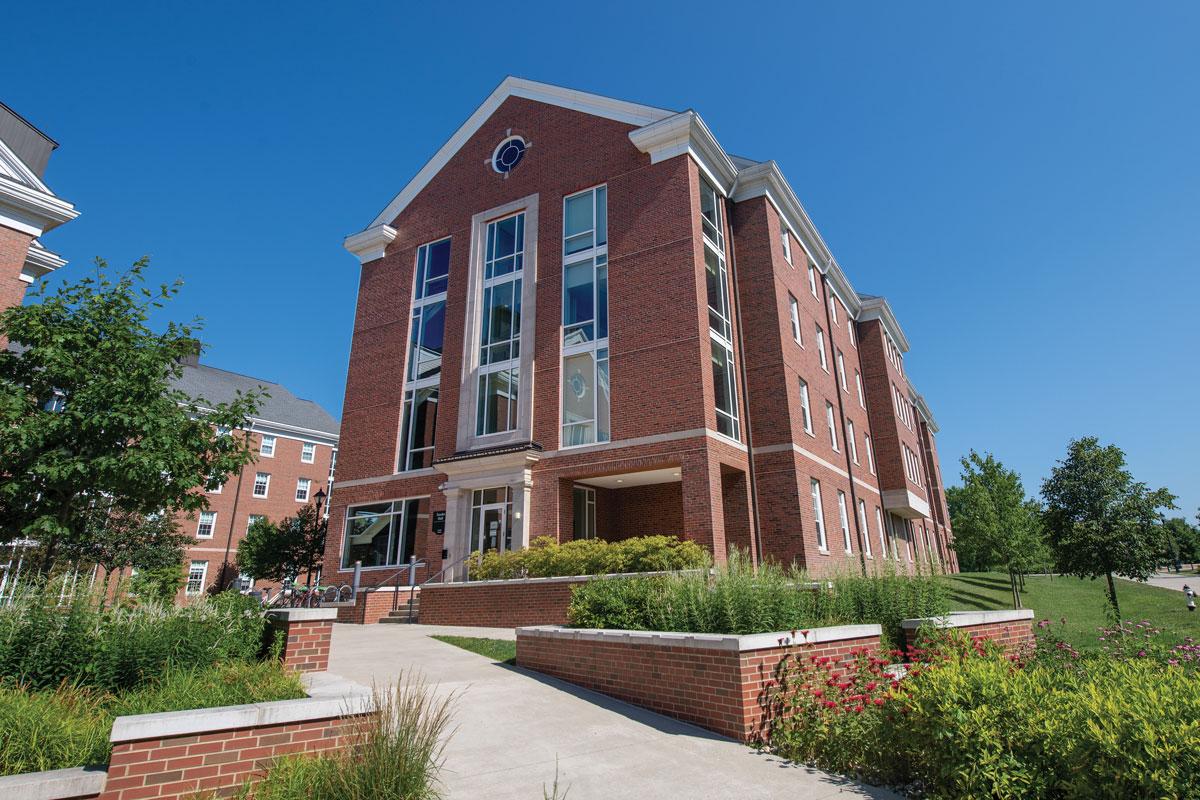
Photo by Ben Wirtz Siegel, BSVC ’02
Tanaka Hall opens on South Green, named after Tomoyasu and Sumiko Tanaka. Tomoyasu Tanaka is known as the father of the OHIO-Chubu partnership. He served on OHIO’s physics and astronomy faculty from 1971 to 1989.
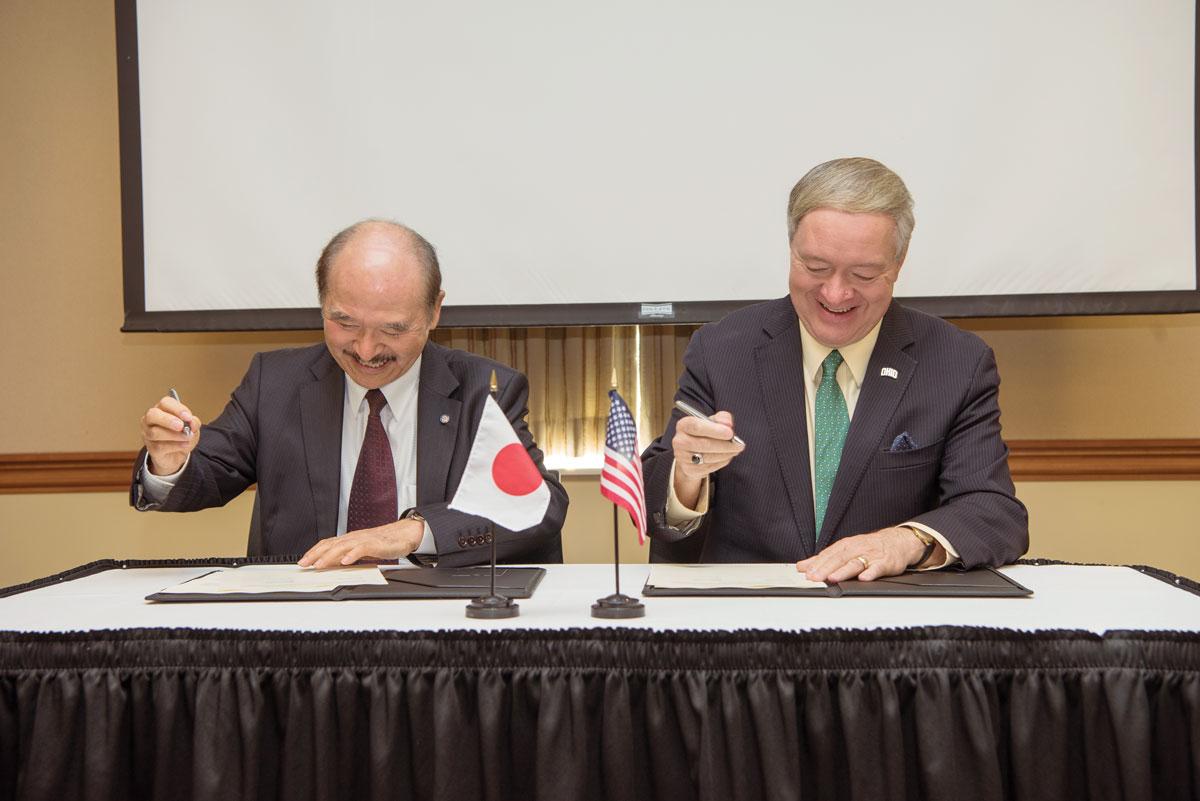
Photo by Ben Wirtz Siegel, BSVC ’02
Chubu University President Osamu Ishihara attends the investiture of Ohio University President M. Duane Nellis. During the visit, a ceremony is held to renew the OHIO-Chubu partnership.
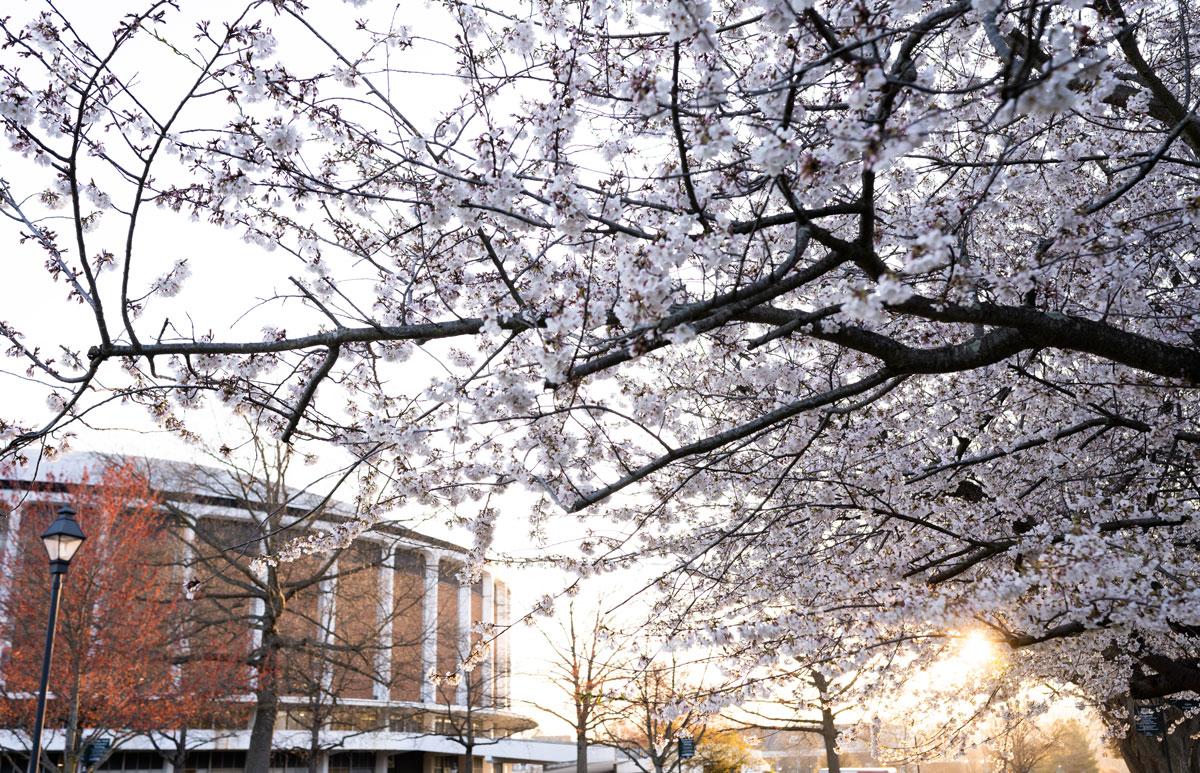
Photo by Ben Wirtz Siegel, BSVC ’02
OHIO and Chubu celebrate the 50th anniversary of the partnership between the two institutions. Celebrations will occur at both institutions and friendship benches will be installed on both campuses; one in Athens will be placed among the cherry trees.

Image courtesy of John Sabraw
Faculty and students from Ohio, Chubu and Iwate Prefecture Universities plan to collaborate on sibling murals. One mural will be painted on a recently completed 48-foot-tall seawall in Taro, Iwate Prefecture, Japan. Taro was devastated by the tsunami that hit in 2011; its citizens will also be involved in the mural design. The theme will likely be a traditional fishing village hamamukae (welcome back to shore) scene. The other mural in Athens will likely be printed and displayed outside. Shown is a sketch of a concept for the Athens mural.
OHIO and Chubu celebrate the 30th anniversary of Chubu’s semester-length Choki Study Abroad Program to OHIO.
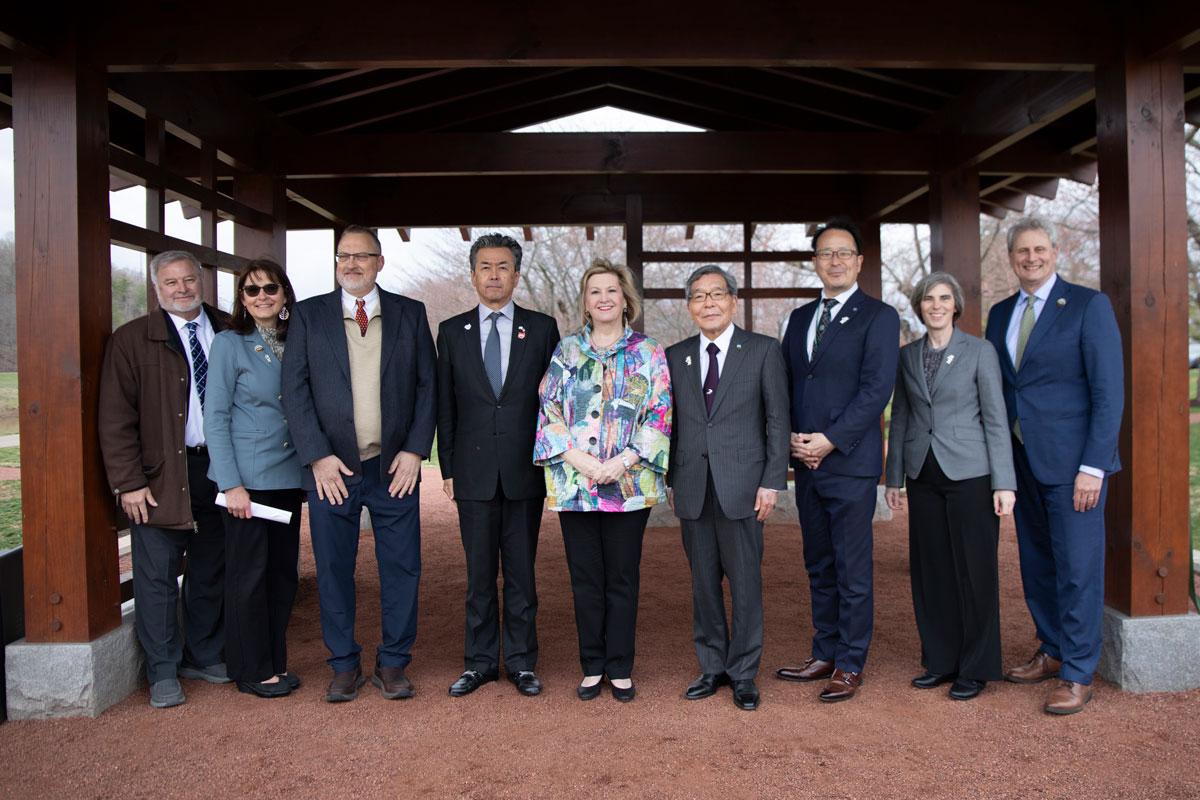
OHIO and Chubu celebrate the dedication of the new Friendship Park Pavilion in the original cherry tree grove on the Athens campus. It’s attended by OHIO President Lori Stewart Gonzalez and Executive Vice President and Provost Don Leo; Chubu University President Masayoshi Maeshima; the Consul General of Japan in Detroit, Hajime “Jimmy” Kishimori; and their delegations. President Maeshima donates two weeping cherry trees to celebrate the occasion and the “enduring friendship between our universities.” The visit also includes meetings with leaders from both institutions to reaffirm the historic partnership and discuss new areas of collaboration.

